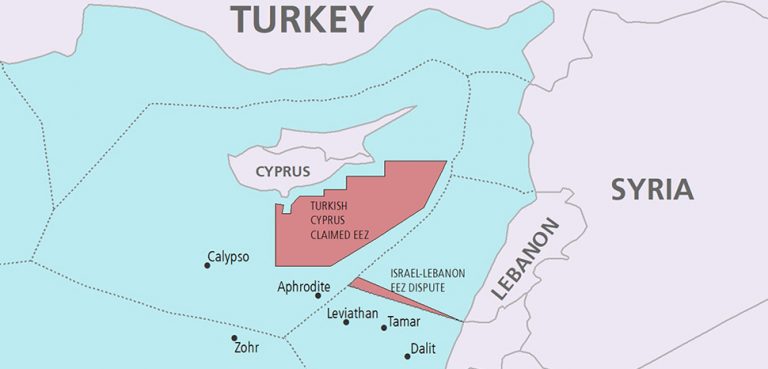Tension in the Eastern Mediterranean has been on the rise over the past few years. Amid longstanding maritime disputes and the discovery of rich gas deposits, Turkey has been acting with increasing boldness. In a dynamic that resembles the one observed in the South China Sea, Ankara has claimed waters that the international community considers part of Greece and Cyprus by combining assertive rhetoric with controversial legal arguments and military maneuvers. In November 2019, Turkey signed a controversial deal with Libya’s UN-backed Government of National Accord (GNA) on the delimitations of the respective exclusive economic zones (EEZ), which attracted much criticism as it ignores the presence of Crete. In August 2020, Greece reached a similar agreement with Egypt, causing Turkey to protest as – according to its declarations – it violates its rights over the continental shelf.
Later in the same month, Ankara sent a seismic survey vessel named Oruç Reis alongside five warships in waters south of the Greek island of Kastellorizo, which are considered part of Greece’s EEZ, thus attracting condemnation from the international community. The Greek military followed the Turkish formation closely to monitor its movement, and at one point a Greek frigate collided with a Turkish one. At that point, France intervened by sending a warship to take part in joint maneuvers with the Greek Navy and by dispatching two Rafale fighters to Crete. The United Arab Emirates took similar measures by dispatching four F-16 jets to train with the Greek military in Crete.
The issue has become increasingly tense amid such military posturing, and the fact that it is intimately linked with other geopolitical hotspots in the Mediterranean makes the situation all the more volatile looking ahead.
The ‘core three’ of the Eastern Mediterranean Dispute: Greece, Turkey and Cyprus
The two main sides of the Eastern Mediterranean dispute are surely Greece and Cyprus on one hand and Turkey on the other. Athens and Ankara are involved in a longstanding quarrel over the delimitation of the respective maritime zones in the Aegean. Greece, differently from most nations, has established its territorial waters to just six nautical miles from the costal baseline, as opposed to the twelve that are commonly used and accepted by international law. The reason behind Athens’ decision was that Ankara opposed the twelve-mile territorial waters, as this would have effectively turned the Aegean into a ‘Greek lake’ due to the numerous islands that Greece owns. In 1995, the Turkish Parliament even declared that an extension of the Greek territorial waters would be regarded as a casus belli (reason to declare war). Because of that, Ankara condemned Athens’ recent decision to increase its territorial waters to twelve nautical miles along (and exclusively) its western coast. This dispute also translates into a rather unique discrepancy between Greece’s territorial waters and airspace. According to the rules of ICAO (the international body regulating civil aviation) the two shall coincide, but in Greece’s case the airspace extends to ten nautical miles, thus four miles beyond the territorial waters. Paradoxically (since its own casus belli statement is a primary cause of this situation) Turkey rejects this outer four-miles belt and its fighter jets have repeatedly violated it.




